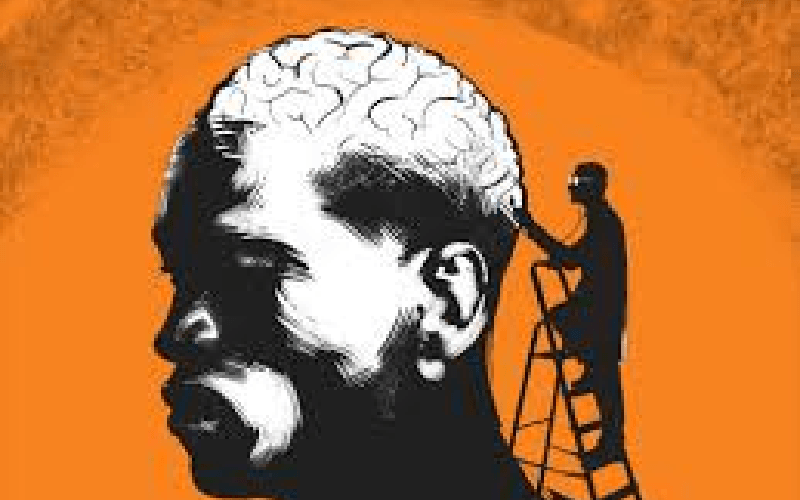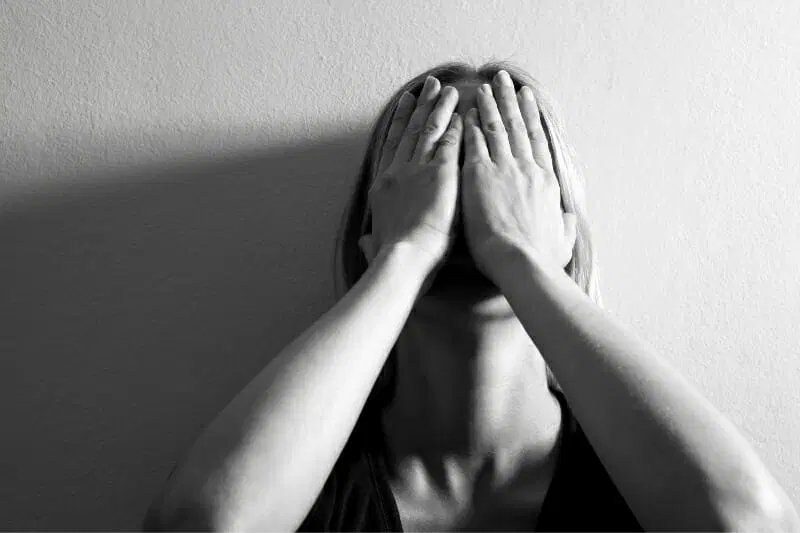
DR NELLY KAMWALE: Understanding mental health and preventive strategies
Mental health is not merely the absence of mental illness.
Violence against women is a pervasive issue that affects millions of women worldwide.
In Summary

Audio By Vocalize

Esther Wanjuki (not her real name) is one of the survivors of Gender Based Violence and as she narrates her ordeal, her voice is shaky.
An emotional Esther recalls how her ex-husband used to beat her almost every night, for no good reason.
“He would come home from work angry and start complaining about everything; why there is not enough salt in the soup, why the house smells of lavender and not sandalwood. He would find any excuse to slap me,” she said.
“I remember one night he kicked me and left me writhing on the floor then doused our house with paraffin claiming he’ll burn it down. I don’t know what stopped him.”
During her torture at the hands of the man she loved, Esther can’t recall the many times she would find herself at the ER (emergency room) and lying that she had fallen down the stairs, or that she hit a wall in her clumsiness.
Esther said up until today, four years down the line, the phantoms of her former marriage haunt her.
“I have been to rehab twice for my (PTSD) post-traumatic stress disorder and I still have nightmares,” she said.
Violence against women is a pervasive issue that affects millions of women worldwide.
While the physical injuries sustained from violence are often the most visible and immediate consequences, the long-term psychological toll is just as devastating, though less visible.
Many women who experience violence, whether physical, emotional, or sexual, endure lasting psychological scars that can affect their mental health, self-esteem, and ability to function in society long after the bruises have healed.
Experts are now stressing the need to look beyond the visible injuries to the mental and emotional wounds that victims carry.
These psychological wounds can have profound and long-lasting effects on a woman’s ability to live a fulfilling life and often require specialized care and attention to heal.
The psychological impact of violence
The psychological consequences of violence are complex and can vary widely depending on the nature of the abuse, the relationship between the victim and the abuser and the individual’s coping mechanisms.
However, common psychological effects of violence against women include anxiety, depression, post-traumatic stress disorder (PTSD), and a diminished sense of self-worth.
PTSD occurs when a person experiences intense emotional and psychological distress in response to a traumatic event.
Women who have suffered physical, emotional, or sexual violence often experience flashbacks, nightmares, intrusive thoughts and hyperarousal, such as constant fear and vigilance, long after the abuse has ended.
This persistent state of emotional turmoil can significantly affect a woman’s daily life, making it difficult to function normally or maintain relationships.
Anxiety can manifest as constant worry, panic attacks, and a heightened sense of fear, particularly in situations or environments that may remind the survivor of the abuse.
Depression, on the other hand, often manifests in feelings of hopelessness, sadness, worthlessness, and a loss of interest in activities once enjoyed.
For many women, the psychological consequences of violence can lead to feelings of isolation, as they feel unable to connect with others or explain what they’ve been through.
Low self-esteem is another significant psychological impact of violence.
Many women who experience violence, especially emotional and verbal abuse, internalize the messages of blame and shame that abusers often impart.
These women may begin to believe that they deserve the abuse or that they are unworthy of love and respect.
Over time, this negative self-image can erode a woman’s confidence and sense of autonomy, making it harder for her to leave an abusive situation or rebuild her life after the abuse ends.
The cycle of abuse and psychological manipulation
One of the most insidious aspects of violence against women is the cycle of abuse, where victims often find themselves trapped in harmful relationships.
This cycle can be emotionally and psychologically damaging in ways that go beyond the physical harm inflicted.
Abusers often use psychological manipulation, such as gaslighting, isolation and constant criticism, to break down the victim’s sense of reality and self-worth.
Esther likens her former marriage to Stockholm Syndrome. She says every time she thought of leaving she would remember how much she loved the man.
Despite being “a monster”, she says her ex-husband would pamper her with gifts including designer bags, the perfect kind of shoe and lunch dates.
“This however did not last for long. He would revert to his ways until the next time I would threaten to leave,” she adds.
The isolation that often accompanies abusive relationships also contributes to the psychological toll of violence.
Abusers frequently control their victims by limiting their access to friends, family, and support networks.
This isolation can create a sense of loneliness and helplessness, as the victim feels cut off from potential sources of help and validation.
The longer the isolation continues, the more the victim becomes dependent on the abuser, making it even harder to escape.
Guilt, Shame and Self-Blame
Another deeply damaging psychological effect of violence against women is guilt and self-blame.
Many survivors of abuse feel that they are somehow responsible for the violence they have experienced.
This is often exacerbated by the abuser, who may place the blame on the victim by accusing her of provoking the abuse or not being “good enough.”
As a result, many women internalise this blame and believe that they deserve the abuse in some way.
This sense of guilt can be paralyzing, preventing women from seeking help or speaking out about their experiences.
They may feel too ashamed to tell others what they have been through, fearing judgment or disbelief. In some cases, this self-blame can lead to continued abuse, as the victim may not recognize that the violence is not her fault and that she deserves better.
The need for comprehensive support systems
Given the profound psychological impact of violence, mental health professionals emphasise the importance of providing comprehensive support systems for survivors.
This includes not only medical and legal assistance to address the physical aspects of abuse but also mental health services to help women cope with the psychological trauma they have experienced.
Therapy is a critical component of recovery for many survivors.
Trauma-focused therapy, such as cognitive-behavioural therapy (CBT) and eye movement desensitisation and reprocessing (EMDR), can help survivors process their experiences, rebuild their sense of self, and learn healthy coping mechanisms.
Support groups are also invaluable, as they provide a safe space for women to share their stories, connect with others who understand their pain, and gain strength from the collective experience of healing.
Raising awareness and advocacy
Raising awareness about the psychological toll of violence against women is crucial to holistically addressing the issue.
Too often, the focus on the physical consequences of violence overshadows the emotional and mental impacts, leaving survivors feeling overlooked or misunderstood.
Moreover, advocating for women’s rights and policies that support mental health care for survivors is vital in creating lasting change.
Comprehensive policies that address both the physical and psychological needs of victims of violence are essential to breaking the cycle of abuse and helping survivors reclaim their lives.

Mental health is not merely the absence of mental illness.